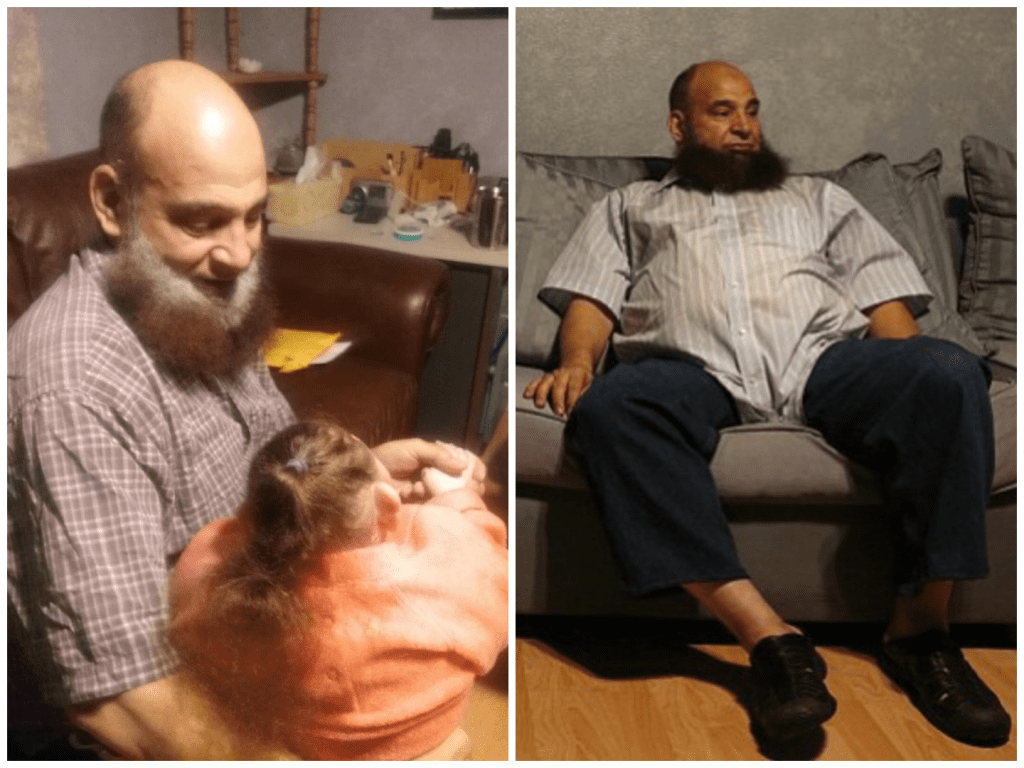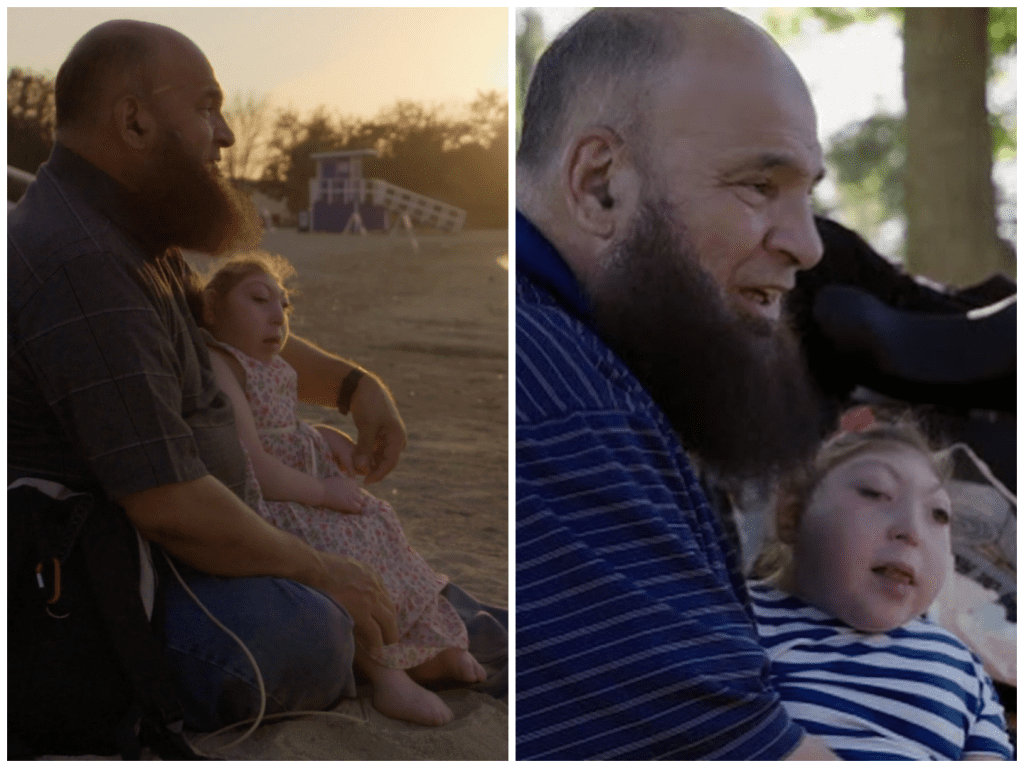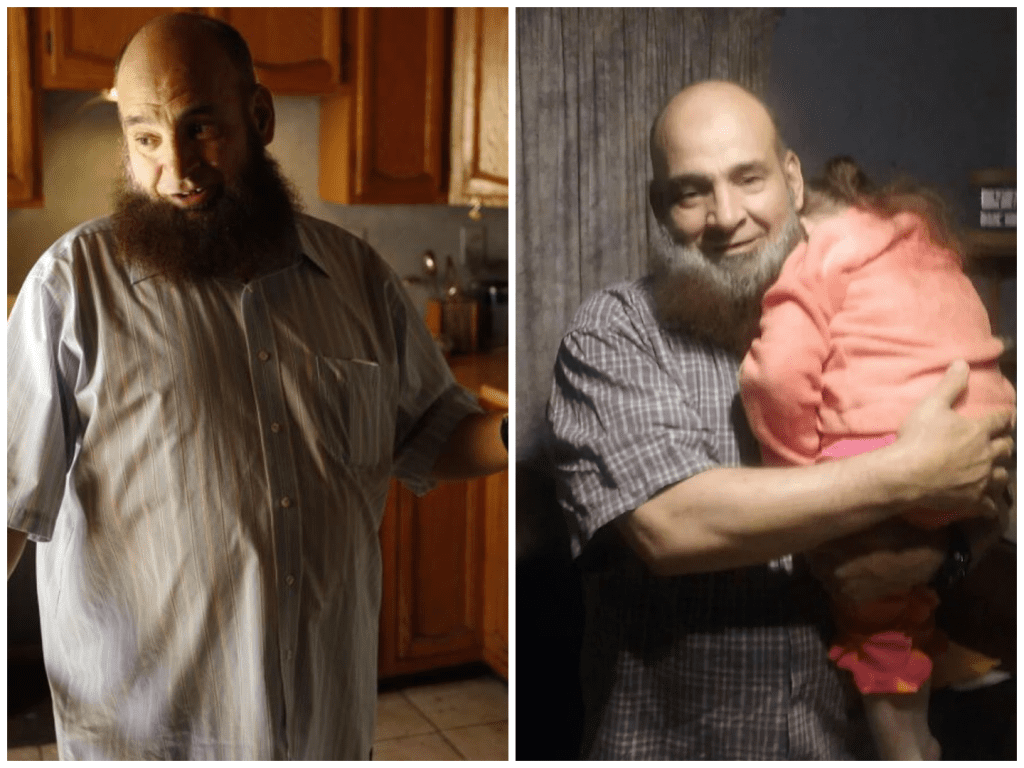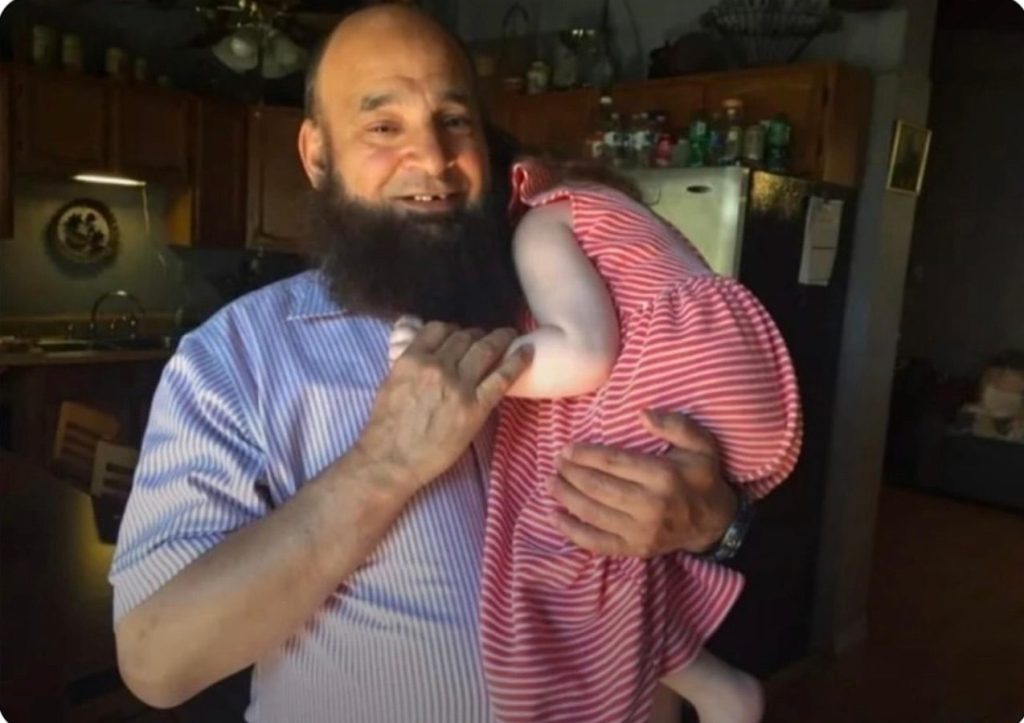He Fostered 80 Terminally Ill Children in 20 Years — Even After Losing His Wife, Mohamed Bzeek Never Stopped Loving
There are people in the world whose hearts seem too big for the pain they carry. Mohamed Bzeek is one of those people. He doesn’t wear a cape, he’s never made headlines for flashy achievements, and he doesn’t ask for thanks. But for dozens of dying children, he has been the last person to hold their hand, the last person to whisper, “You are loved.” This quiet man from Los Angeles has spent over two decades caring for terminally ill foster children—children the world often forgets. Even after the heartbreak of losing his wife, even while carrying grief, Mohamed kept opening his home and arms to kids with no one else. If that’s not love, what is?

Mohamed Bzeek’s story doesn’t begin in the spotlight. He came to the U.S. from Libya in the 1970s to study engineering. But somewhere along the way, he and his wife Dawn made a life-altering decision. They would become foster parents—not just to any children, but specifically to those who were terminally ill. Children who had been abandoned, whose parents couldn’t or wouldn’t take care of them, and who were facing the end of their short lives without comfort. It was a calling few could ever answer. But for Mohamed, it just felt like the right thing to do.
Over the next 20 years, Mohamed and Dawn took in dozens of children—80 by some counts. Many of them had serious disabilities, untreatable conditions, or diagnoses that terrified even the most trained professionals. Some couldn’t walk, some couldn’t talk. Some didn’t live past a few days in his home. But none of them died without someone who cared beside them. Mohamed didn’t just care for them medically. He gave them dignity. He read to them. He held them. He made sure their last days had warmth.

Then, in 2015, Mohamed lost the love of his life. Dawn passed away, and the world around him shifted. Many thought he would stop fostering. After all, it was something they had done together. And now, he was alone, grieving, and still caring for severely ill children. But Mohamed didn’t stop. He couldn’t. “These children are human beings,” he once told the LA Times. “They deserve to be loved. They deserve to have someone who stays with them, even if they’re not going to make it.”
It wasn’t easy. Mohamed has a son of his own, born with dwarfism and a brittle bone condition. He works as a full-time foster parent, managing endless hospital visits, sleepless nights, and emotional exhaustion that most people can’t imagine. At times, he had no working car, no central air, and lived on a modest income. But even when the system let him down, even when he felt alone, he refused to turn away a child in need.
In 2017, his story reached a wider audience thanks to a Los Angeles Times article that went viral. People were stunned. In a world filled with so much selfishness and noise, here was a man quietly giving dying children a home. A GoFundMe campaign was started. It raised over $500,000. Mohamed used the funds to improve his home, his vehicle, and caregiving resources—not for himself, but so he could do more for the children he cared for. That’s the kind of person he is.
What makes Mohamed’s story so powerful is how gentle and grounded it is. He never seeks fame. He rarely complains. In interviews, he often gets emotional when talking about the children who didn’t make it—but also lights up when sharing how some of them laughed, loved, or said “dad” before passing. He isn’t trying to fix the world. He’s just trying to make sure no child dies feeling unloved or unwanted.

This kind of love changes people. Those who’ve met Mohamed often describe him as calm, kind, and full of grace. But what’s more incredible is how he keeps going. The grief of watching child after child pass away would destroy most people. The medical responsibilities would overwhelm many. Yet Mohamed simply keeps showing up, again and again, because someone needs to.
His story has inspired countless others to think differently about foster care, illness, and the quiet strength of compassion. It’s a reminder that even when the world feels cold, even when systems fail and people turn away, there are still individuals who step up—not because they have to, but because it’s who they are.
In many ways, Mohamed Bzeek is the kind of man you never hear about. But maybe we should. Maybe stories like his are exactly what we need in a time when headlines are filled with anger, division, and noise. Maybe love—uncomplicated, tireless love—is the most radical thing someone can offer.
Today, Mohamed is still fostering children in Los Angeles. Still holding the hands of those most vulnerable. Still answering the call that so few others can. His home may not be filled with laughter every day. It may carry the weight of goodbye more often than most. But it is a home full of love, and that is something no illness can erase.


